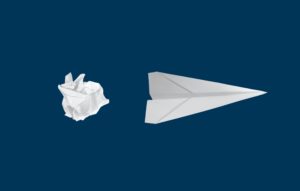Appreciation for a System
In this guest post, Dr. Doug Stilwell looks at The Starfish Story of a humble hero through the Deming lens, and sees how, by understanding the System of Profound Knowledge, we can achieve a much greater impact.
Read MoreIn this guest post by John Hunter, he explores how using Deming systemic thinking leads to innovation, when the urge to “just do what we’ve always done” is strong.
Read MoreIn this guest post, Ed Baker describes how the Deming philosophy is a unique and all-encompassing way of thinking. Unlike TQM, Six Sigma, Lean Manufacturing, and other programs promoted to improve quality and productivity, Deming is not simply a checklist, program, or set of methods for managers.
Read MoreDr. Deming believed everyone is entitled to joy in work, and extended that to education as well. David P. Langford has worked to implement Deming in schools and education systems around the world, and in this first of two posts about his work, Christina Dragonetti relates how he got started and the impact of introducing the Deming philosophy – based on joy in learning – into classrooms.
Read MoreIn this guest post, John Hunter explores the questions management should ask when there’s a failure or problem, rather than blaming an individual.
Read MoreIn this guest post, John Hunter reviews the Systems Thinking for Civil Servants resource from the UK Government Office for Science and connects it to the Deming philosophy.
Read MoreIn this guest post John Hunter reviews “Transforming Resident Assessment: An Analysis Using Deming’s System of Profound Knowledge” and discusses how evaluations often lead to bad data.
Read MoreThis Russ Ackoff lecture, from the late 1970s, focuses on the age of systems. The nearly 2-hour lecture spans the development of science and scientific thinking while exploring topics such as philosophy, psychology, our ways of thinking, religion, history, physics, linguistics, and more.
Read MoreThis guest post by John Hunter, author of the Curious Cat Management Improvement Blog, is part of our Deming on Management series that aims to provide resources to help those transforming their management system to one based on Deming’s management ideas.
Read MoreIn most organizations, managers’ challenges range from doing more with less to motivating employees. This is causing managers to report “burnout” on a massive scale. To solve such challenges effectively, means identifying their underlying causes which, the authors find, are seldom addressed.
Read More- « Previous
- 1
- 2
- 3
- Next »












